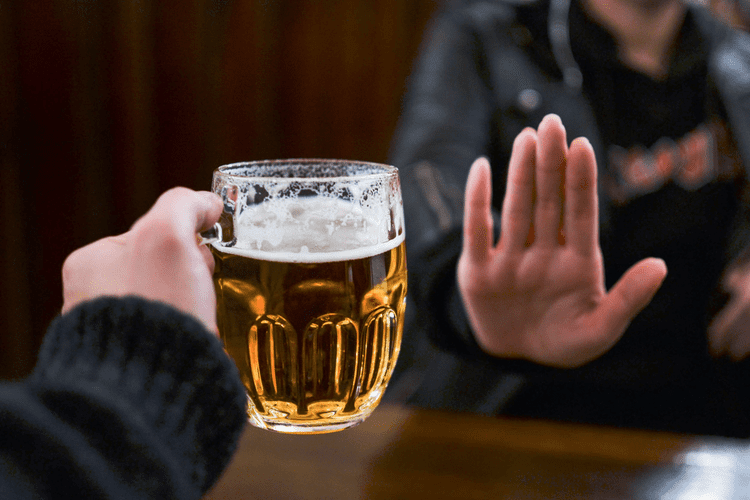Ways Alcohol Can Affect Relationships I Psych Central
Communication breaks down, parental monitoring decreases, and children may adopt maladaptive coping mechanisms that follow them into adulthood. Understanding that addiction follows three distinct stages of relapse helps explain why promises are often broken during the recovery journey. The pattern becomes particularly destructive when you enable these behaviors by covering up incidents or making excuses. Your loved one may respond to declining trust by making unrealistic promises, setting up future disappointments. Their behavioral unpredictability erodes trust, creating intimacy gaps that grow wider with each drinking episode. Understanding common relapse triggers, like stress or social pressure, can alcohol and relationships help you prepare for challenges ahead.
Read more about how alcohol can affect us

It’s crucial to address these heightened emotional responses and work towards open communication and conflict resolution strategies that are not influenced by alcohol. One of the ways alcohol can affect emotional intimacy is by creating an emotional disconnect between partners. Alcohol can impair judgment and inhibit emotional expression, making it difficult for individuals to connect with their partners on a deep emotional level. This emotional disconnect may result in partners feeling distant, unheard, or emotionally neglected.

Steps to Heal from Codependency with Alcohol
Our counseling team of licensed psychiatrists, psychologists, family therapists, and social workers provide individualized care that fits your needs. At PSI’s outpatient treatment in Chicago, IL, our team will provide guidance support to both you and your loved ones as you recover from alcohol dependence and restore your relationships. One consequence of interdependence is that the attributes and behaviors of one dyad member can affect the outcomes of the other dyad member. There is much support for the notion that the behavior of one partner predicts the behavior of the other partner (e.g., McNulty & Karney, 2002) and that measures tend to be correlated among relationship partners (e.g., relationship satisfaction). Commonly used statistical procedures, such as analysis of variance (ANOVA) and multiple regression, assume that the observations on the dependent variable are independent.
We also draw attention to some red flags that your drinking may have become unhealthy, and provide next steps for making a change. Overall, alcohol misuse can lead to a neglectful environment, affecting every family member’s mental, emotional, and financial well-being. Support groups and therapy are vital resources for families to cope with the challenges posed by alcoholism. Further supporting this connection, the Bureau of Justice Statistics notes that a substantial number of spousal violence victims report that their aggressor had been drinking prior to the incident. This suggests that alcohol may act as a disinhibitor, potentially leading to increased aggression and reduced impulse control.
Schedule time with a couple’s counselor to help build better communication
Arguments that might otherwise resolve quickly can spiral into major conflicts when one or both individuals have been drinking. Research, including findings from studies on relational dynamics (ScienceDaily study), shows heavy alcohol use is tied to increased verbal and physical conflicts in relationships. Cognitive Behavioral Therapy (CBT) offers structured techniques that assist couples in enhancing their emotional regulation and minimizing conflict escalation disputes.
- Couples therapy, family therapy, individual therapy, and group therapy all provide valuable support in addressing substance-related difficulties.
- Continual exposure to emotional upheaval in alcoholic relationships erodes mental stability and breaks down our natural psychological defenses.
- Number of drinks per week has previously been shown to be a reliable index of alcohol-related problems among college students relative to other drinking indices (Borsari, Neal, Collins, & Carey, 2001).
- Your trust rebuilding timeline during the sobriety path typically spans 1-2 years, though it can vary considerably based on your unique circumstances.
- Here are several strategies to help you break free from this pattern and restore balance in your life and relationships.
Whether your loved one chooses recovery or not, you can take steps to improve your own life and well-being. Perhaps no concept is more important to understand when dealing Sober living house with alcoholic behavior in relationships than codependency. A codependent relationship develops when one person (often the partner or family member of the person with substance use disorders) becomes so focused on the alcoholic’s needs, problems, and behaviors that they lose sight of their own needs and identity.
Is alcohol use disorder a mental disease?
Drinking alcohol is a socially acceptable behavior, until a person loses control over their alcohol consumption. Alcohol addiction, or alcohol use disorder, is a substance use problem in which a person obsesses over alcohol and cannot stop once they get started. Or do you feel like you can’t seem to have a single good day anymore, no matter how hard you try? By taking a closer look, you might find that you or your partner’s drinking habits are at the core of many of your disagreements. The truth is that alcohol abuse can take a serious toll on even the strongest of relationships, to the point where they can fail.
Alcoholism erodes trust, yet trust is vital to maintaining all kinds of relationships, including platonic, romantic, familial, and professional. Trust in particular serves as a vital foundation for healthy relationships, allowing for vulnerability and emotional intimacy while facilitating a sense of security. Trust also encourages open, honest communication, which allows for people to resolve conflicts and make it through difficult challenges. Without trust and communication, it is virtually impossible to maintain a healthy relationship.
The impact extends beyond intimate partnerships, affecting children who face higher risks of developing substance use problems themselves. While only 18% of people seek treatment, understanding these patterns and their consequences is your initial step in the direction of positive change there’s much more to investigate about healing these essential connections. Data was collected from both partners in committed heterosexual romantic relationships. Furthermore, because the dyads are heterosexual, we are able to evaluate whether the dyads are distinguishable by gender and thus whether this effect differs for males and females. Alcohol can have a significant impact on relationships, affecting various aspects of communication, emotional intimacy, trust, and even contributing to domestic violence. Understanding the link between alcohol and relationship issues is crucial for individuals and couples who may be facing challenges in their relationships due to alcohol misuse.
Understanding the Link Between Alcohol and Aggressive Behavior

These alterations can manifest as mood swings, aggression, and a decline in mental health, ultimately straining relationships and causing issues such as mistrust and poor communication. Furthermore, individuals with depression might use alcohol as a coping mechanism, which can worsen their condition and further damage their relationships. Partners often hide or downplay their drinking habits, which leads to secrecy, financial issues, and broken promises.
It’s never too early to reflect on your relationship with alcohol or seek outside guidance. Children, in particular, are vulnerable to the negative effects of a family member’s alcohol use. They may experience emotional and behavioral difficulties, such as anxiety, depression, and aggression. Children raised around alcoholism are four times more likely to repeat the cycle while also being at an increased risk of developing emotional problems.
